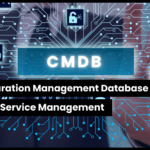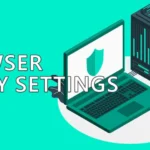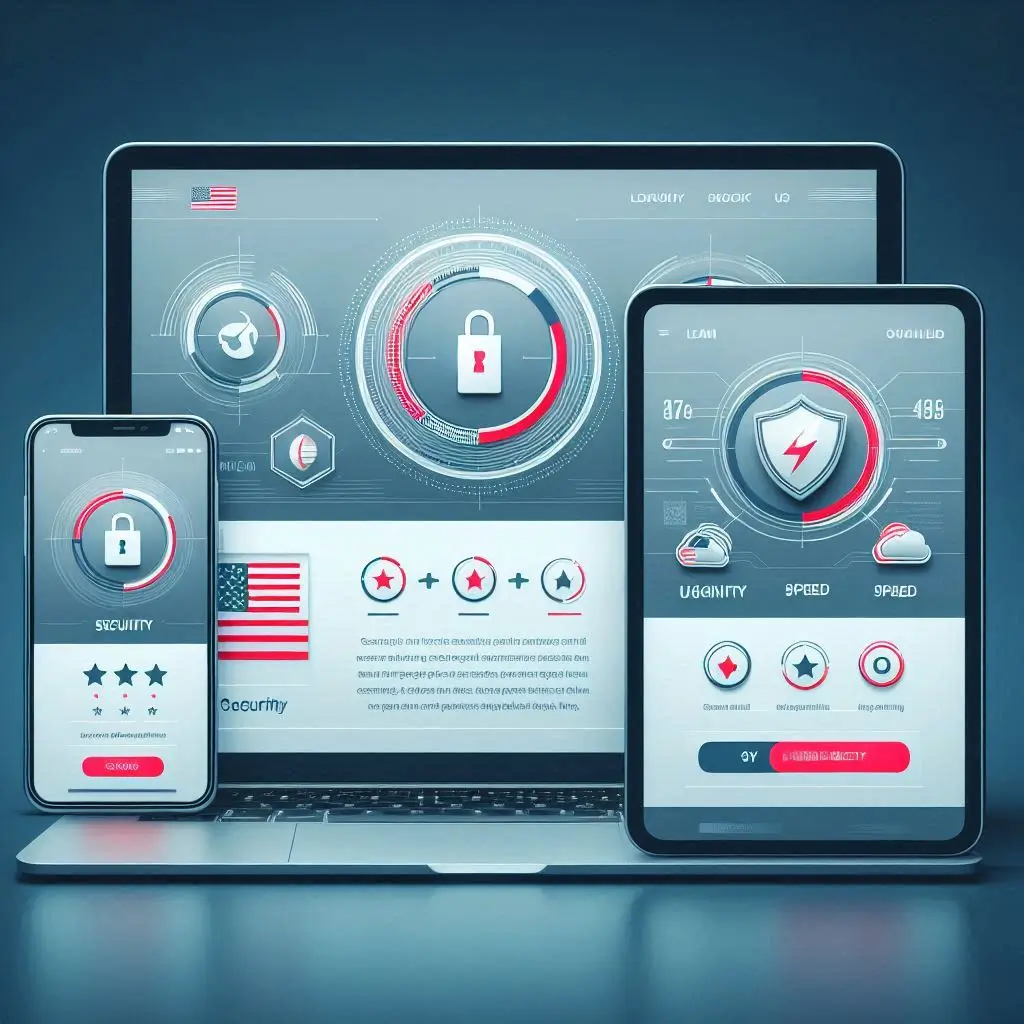Welcome to a world where gaming meets blockchain! In this controversial and informative exploration of NFT game development Company, we delve into the captivating realm of NFT gaming platforms. Brace yourself for a mind-bending journey, as we unravel the mysteries behind this cutting-edge technology. From the revolutionary concept of tokenized assets to the mind-boggling economics of digital ownership, prepare to have your perceptions shattered.
We will dissect the controversies, highlight the opportunities, and guide you through the intricate workings of this rapidly evolving landscape. Whether you are a curious gamer, aspiring developer, or blockchain enthusiast, get ready to unlock the secrets of NFT game development like never before.
What are NFTs?
NFTs, or non-fungible tokens, are unique digital assets that are stored on a blockchain, providing proof of ownership and authenticity. Unlike cryptocurrencies, NFTs are indivisible and cannot be exchanged on a one-to-one basis. Each NFT holds distinctive characteristics and properties, making it truly one-of-a-kind.
How NFTs Differ From Cryptocurrencies Like Bitcoin And Ethereum:
While Bitcoin and Ethereum operate as fungible cryptocurrencies, NFTs stand apart. Unlike interchangeable coins, NFTs represent ownership of a specific item, such as artwork, music, or virtual real estate. This uniqueness grants NFTs their value, driven by scarcity, demand, and the ability to prove authenticity and provenance.
Examples Of Popular NFTs And Their Value:
Following are the examples of popular NFTs and ther value:
CryptoPunks
These pixelated avatars gained immense popularity, with some selling for millions of dollars. The rarest Punk, “CryptoPunk #7804,” fetched a staggering $7.6 million at auction.
Beeple’s “Everydays
The First 5000 Days”: A groundbreaking digital artwork by artist Mike Winkelmann, a.k.a. Beeple, sold for a jaw-dropping $69 million, making it one of the most expensive NFTs to date.
NBA Top Shot
This blockchain-based platform showcases officially licensed NBA highlight videos transformed into collectible NFTs. Moments like LeBron James’ epic dunk have sold for over $200,000.
Axie Infinity
A popular blockchain-based game where players breed, battle, and trade virtual creatures called Axies. The game’s highly sought-after Axies have commanded prices exceeding tens of thousands of dollars.
“Crossroads” by XCOPY
An NFT artwork that portrays a dystopian future, “Crossroads” sparked controversy and intrigue. It sold for approximately $6.6 million, reflecting the growing market for digital art.
Unraveling the Enigma of NFT Gaming: Decoding the Secrets Behind Digital Ownership
NFT gaming combines blockchain technology with gaming, introducing non-fungible tokens as in-game assets. These digital assets are indivisible, verifiable, and possess unique characteristics, enabling players to truly own and trade them. This ownership opens up exciting possibilities for gamers and developers alike.
Benefits
Immersive Ownership:
Unlike traditional gaming, NFT gaming empowers players with true ownership of in-game assets. Each NFT represents a unique item, character, or piece of land, giving players a sense of pride and exclusivity.
Play-to-Earn Opportunities:
Integrating NFTs into gaming introduces a new paradigm where players can earn real-world value by acquiring, trading, or selling their in-game assets. This economic model revolutionizes the gaming experience, allowing gamers to turn their passion into a lucrative endeavor.
Interoperability and Cross-Game Integration:
NFTs are not limited to a single game. They can be used across different gaming platforms and even integrated into other applications. This interoperability encourages collaboration, innovation, and an open ecosystem for developers and players.
Scarcity and Collectibility:
NFTs bring scarcity and collectibility to the digital realm. Limited edition items, rare characters, or exclusive virtual land can hold immense value, driving a dynamic market where players can trade valuable assets and create unique collections.
Community Engagement and Governance:
NFT gaming fosters active community participation, as players become stakeholders in the game’s development and decision-making processes. With governance features enabled by blockchain, players can vote on game updates, balance changes, and other aspects, ensuring a fair and inclusive environment.
How To Get Started With NFT Game Development?
Embark on a fascinating journey as we delve into the intricate process of NFT game development. From concept creation and design to programming and testing, we’ll uncover the secrets of crafting immersive and addictive gameplay experiences that will captivate your audience.
Choosing The Right Blockchain Platform For NFT Game Development:
Controversy awaits as we dive into the heated debate surrounding blockchain game development Company and NFT platforms. Explore the pros and cons of popular blockchain platforms like Ethereum, Binance Smart Chain, and Flow, and discover which one aligns best with your vision, scalability, and community needs. Whether you’re a developer or a gamer, understanding the intricacies of blockchain game development is crucial to navigating this evolving landscape.
Setting Up A Development Environment For NFT Game Creation:
Get ready to challenge the status quo as we navigate the controversial topic of setting up a development environment for NFT game creation. We’ll dissect the debate between centralized and decentralized environments, explore toolsets, and offer expert advice on achieving optimal efficiency and security.
Designing NFTs for Games
In the rapidly evolving landscape of gaming, Non-Fungible Tokens (NFTs) have emerged as a groundbreaking technology. These digital assets hold the potential to transform the way players interact with games, offering unique and valuable in-game items. In this article, we will delve into the world of NFTs and explore the different types used in gaming.
Furthermore, we will uncover the strategies for designing NFTs that resonate with players, ensuring a captivating gaming experience like never before.
Exploring Different Types of NFTs Used in Gaming:
Collectibles:
- Discover the allure of collectible NFTs in gaming and how they tap into players’ desire for exclusivity and rarity.
- Explore popular collectible NFT games and their unique approaches to designing and distributing these digital treasures.
Utility Tokens:
- Dive into the world of utility NFTs and how they enhance gameplay mechanics, providing players with valuable in-game utilities and perks.
- Learn about the different ways developers leverage utility tokens to create engaging and rewarding experiences.
Virtual Real Estate:
- Unveil the concept of virtual real estate in gaming and how NFTs enable players to own and trade virtual land, opening up new possibilities for immersive gameplay.
- Examine successful virtual real estate projects and their impact on the gaming industry.
Creating Unique And Valuable In-Game Assets:
Design Principles:
- Gain insights into the key design principles for crafting NFTs that stand out in a competitive gaming market.
- Explore techniques for creating visually appealing assets and incorporating storytelling elements to enhance their value.
Scarcity and Rarity:
- Understand the importance of scarcity and rarity in driving the desirability of NFTs.
- Learn how to strategically apply scarcity models and create a sense of exclusivity that captivates players.
Play-to-Earn Economy:
- Uncover the rise of the play-to-earn economy and its connection to NFTs.
- Discover how to design in-game assets that provide players with meaningful opportunities to earn real-world value.
Strategies for Designing NFTs that Resonate with Players:
Player-Centric Approach:
- Embrace a player-centric mindset by understanding the preferences and motivations of your target audience.
- Learn how to align NFT designs with player expectations and deliver a rewarding experience.
Community Engagement:
- Explore strategies for involving the community in the design process, fostering a sense of ownership and connection.
- Understand the power of community-driven initiatives and the impact they have on the success of NFT games.
Iterative Design and Feedback Loops:
- Harness the iterative design process and leverage feedback loops to refine and optimize NFT designs.
- Discover how continuous improvement leads to increased player satisfaction and long-term success.
Developing the NFT Game Mechanics
NFT game development has introduced a groundbreaking paradigm shift in the gaming industry. In this controversial yet informative piece, we delve into the crucial aspects of developing NFT game mechanics. We explore the significance of gameplay mechanics, the delicate balance between gameplay and NFT value, and the implementation of blockchain functionalities within the game. Brace yourself for an engaging and detailed journey into the world of NFT game development.
Understanding the Importance of Gameplay Mechanics in NFT Games:
Gameplay mechanics form the backbone of any successful game, and NFT games are no exception. We discuss why gameplay mechanics are critical in creating engaging and immersive experiences. From character progression to combat systems, we explore how well-designed gameplay mechanics can enhance player enjoyment and retention. Uncover the key elements that make NFT game mechanics stand out and how they contribute to the overall success of the game.
Balancing Game Mechanics with the Value of NFTs:
One of the challenges in NFT game development is striking a delicate balance between game mechanics and the value of NFTs. We examine the fine line developers must walk to ensure both aspects harmoniously coexist. Dive into the controversial debate on whether NFTs should primarily serve as collectibles or have utility within the game mechanics. Discover how finding the right equilibrium can influence player engagement, monetization, and the perception of fairness in NFT games.
Implementing Blockchain Functionalities In The Game:
Blockchain technology lies at the core of NFT game development, empowering decentralized ownership and facilitating secure transactions. We provide a detailed exploration of implementing blockchain functionalities within NFT games. Uncover the potential benefits, such as transparent asset ownership, provable scarcity, and player-driven economies. We also address the technical challenges developers face and offer insights into effective integration strategies.
Smart Contracts and NFTs
Introduction To Smart Contracts And Their Role In NFT Gaming
Smart contracts have emerged as a game-changer in the world of NFT gaming, revolutionizing how digital assets are created, owned, and traded. These self-executing contracts, built on blockchain technology, provide a transparent and decentralized framework for managing NFTs.
At their core, smart contracts are programmable agreements that automatically execute predefined conditions without the need for intermediaries. In NFT gaming, smart contracts act as the backbone of the ecosystem, enabling the seamless creation, ownership, and trading of unique digital assets.
By leveraging smart contracts, game developers can establish immutable rules and conditions for NFTs. This ensures authenticity, scarcity, and provenance, making each NFT truly unique and valuable. Smart contracts also enable automatic royalty payments to creators whenever their NFTs are sold or traded, fostering a more equitable and sustainable gaming ecosystem.
Implementing Smart Contracts for NFT Creation, Ownership, and Trading
When it comes to NFT gaming, smart contracts play a vital role in the entire lifecycle of digital assets. To create NFTs, developers utilize smart contracts to define the attributes, metadata, and ownership rights associated with each unique item. These contracts use standards like ERC-721 or ERC-1155 to ensure compatibility and interoperability across different platforms.
Once created, NFTs are minted on the blockchain, linking them to their respective smart contracts. This process establishes ownership and authenticity, making it impossible to duplicate or counterfeit NFTs. Smart contracts also govern the transfer of ownership when NFTs are bought, sold, or traded, ensuring a secure and transparent transaction process.
Moreover, smart contracts facilitate the establishment of marketplaces where players can freely trade their NFTs. These contracts provide escrow services, holding the NFT and payment until both parties fulfill their obligations. This eliminates the need for intermediaries and enhances trust between buyers and sellers.
Ensuring Security and Transparency with Smart Contracts
One of the key advantages of using smart contracts in NFT gaming is the inherent security and transparency they provide. As self-executing code stored on the blockchain, smart contracts are immutable and tamper-proof, eliminating the risk of fraud or manipulation. This ensures that NFT transactions and ownership records are transparent, verifiable, and resistant to censorship.
Smart contracts also enable the implementation of royalty mechanisms, ensuring that creators receive a fair share of the proceeds each time their NFTs are resold. These contracts automatically distribute royalties based on predefined percentages, empowering artists and content creators in the NFT gaming space.
To maximize security, smart contracts undergo rigorous auditing and testing to identify vulnerabilities or flaws. Code reviews, external audits, and bug bounties are commonly employed practices to ensure the integrity and robustness of smart contracts. By prioritizing security measures, developers can instill trust and confidence in the NFT gaming community.
Launching and Marketing Your NFT Game
Creating A Marketing Strategy For Your NFT Game:
Launching a successful NFT game requires a well-crafted marketing strategy. Start by identifying your target audience and understanding their preferences. Conduct market research to gauge the demand for NFT games and analyze competitors. Define your game’s unique selling points and create compelling promotional materials. Develop a comprehensive marketing plan that encompasses various channels such as social media, content marketing, email campaigns, and partnerships. Set clear goals and metrics to track your progress. Adapt and iterate your strategy based on user feedback and market trends to maximize your game’s visibility and reach.
Leveraging Social Media And Online Communities:
Social media platforms serve as powerful tools for promoting your NFT game. Identify the platforms most frequented by your target audience and establish a strong presence there. Share engaging content, such as gameplay teasers, behind-the-scenes footage, and development updates, to generate excitement and build a community around your game. Actively engage with your followers, respond to their comments, and encourage user-generated content. Leverage social media advertising to reach a wider audience and consider partnering with influencers or content creators who align with your game’s theme. Engage in relevant online communities, forums, and discussion boards to connect with passionate gamers and generate organic buzz.
Collaborating With Influencers And Engaging The NFT Gaming Community:
Influencer marketing can significantly impact the success of your NFT game. Identify influential figures within the NFT gaming community who resonate with your target audience. Collaborate with them to create sponsored content, livestreams, or giveaways that showcase your game. Their endorsement can introduce your game to a wider audience and establish credibility. Actively participate in NFT gaming communities by sharing insights, providing value, and fostering relationships. Organize community events, tournaments, or exclusive NFT drops to incentivize engagement and loyalty. Encourage user-generated content, such as fan art or gameplay highlights, and reward active community members. By nurturing a passionate and engaged community, you can foster long-term success and drive organic growth for your NFT game.
Monetization and Revenue Streams
Exploring Different Monetization Models For NFT Games
NFT games have revolutionized monetization strategies, offering developers a plethora of models to generate revenue.
Let’s delve into some popular approaches:
In-Game Purchases
Offering exclusive NFT items or character upgrades for purchase within the game, providing players with enhanced experiences.
Limited Edition NFT Sales
Releasing limited edition NFTs with unique attributes, scarcity, or utility, creating a sense of exclusivity and driving demand.
Subscription Models
Introducing subscription plans for access to premium features, additional content, or enhanced gameplay, ensuring a steady income stream.
Tokenomic Mechanics
Designing gameplay mechanics where players can earn or mine tokens through various activities, fostering engagement and value creation.
Sponsorships and Partnerships
Collaborating with brands or sponsors to integrate branded NFTs, advertising, or promotional content within the game.
Generating Revenue Through NFT Sales And Secondary Market Transactions
NFT games thrive on the vibrant secondary market, where players can buy, sell, and trade their acquired NFTs.
This opens up new revenue opportunities:
Primary NFT Sales
Developers can generate revenue by selling NFTs directly to players through initial sales, pre-sales, or auctions, leveraging the scarcity and uniqueness of these assets.
Transaction Fees
Implementing a small fee on NFT transfers within the game or on the secondary market can generate a continuous revenue stream for developers.
Platform Commissions
NFT gaming platforms can charge a percentage fee on each transaction conducted on their platform, creating a sustainable source of income.
Royalties
Developers can receive a percentage of every subsequent sale of their NFTs on the secondary market, earning ongoing revenue as their creations appreciate in value.
The Potential For Play-To-Earn And Decentralized Finance (Defi) In NFT Gaming
Play-to-earn and DeFi concepts are reshaping the landscape of NFT gaming, enabling players to earn tangible rewards:
Play-to-Earn
NFT games can offer players the opportunity to earn valuable in-game assets, tokens, or currencies by participating in various activities, such as completing quests, competing in tournaments, or contributing to the game’s ecosystem.
Staking and Yield Farming
DeFi protocols integrated with NFT games enable players to stake their NFTs as collateral or participate in yield farming to earn additional tokens, creating an additional revenue stream.
Liquidity Mining
NFT gaming platforms can incentivize players to provide liquidity to NFT marketplaces or other game-related platforms, rewarding them with tokens or a share of transaction fees.
Governance and DAOs
NFT games embracing decentralized governance models allow players to participate in decision-making processes and earn governance tokens, giving them a stake in the game’s development and success.
Challenges And Future Of NFT Game Development
NFT game development has its fair share of challenges that developers must navigate.
- Firstly, there’s the issue of scalability. As NFTs gain popularity, the blockchain networks they rely on face scalability constraints. The limited transaction throughput and high fees pose hurdles for seamless gaming experiences.
- Another challenge is ensuring the security and integrity of NFTs. With the increasing value of these digital assets, they become attractive targets for hackers and counterfeiters. Developers must implement robust security measures to protect the ownership and authenticity of NFTs.
- Furthermore, the user experience aspect demands attention. Many NFT games require users to possess a certain level of technical knowledge to interact with blockchain wallets and execute transactions. Simplifying the user interface and streamlining the onboarding process will be crucial to attract a wider audience.
Potential Scalability And Environmental Concerns
The scalability concerns in mobile game development Services are closely tied to the environmental impact of blockchain networks. The energy consumption associated with popular consensus mechanisms like Proof-of-Work has raised concerns about carbon footprints. Developers and blockchain networks are exploring alternative consensus mechanisms like Proof-of-Stake to reduce energy consumption and mitigate environmental impact.
Efforts are underway to develop layer-2 solutions, such as sidechains and off-chain scaling solutions, to address the scalability challenges. These solutions aim to increase transaction throughput while reducing fees and network congestion, providing a smoother experience for NFT gamers.
Exciting Possibilities And Trends For The Future Of NFT Gaming
Despite the challenges, the future of NFT game development holds tremendous promise. One exciting possibility is the convergence of NFTs with virtual reality (VR) and augmented reality (AR) technologies. Imagine immersive gaming experiences where NFTs are seamlessly integrated into virtual worlds, enhancing player interactions and enabling unique in-game economies.
Additionally, the emergence of interoperability standards will enable cross-game NFT functionality. Players could own and utilize their NFTs across different games, creating a vibrant ecosystem where assets can be traded, borrowed, and lent across various platforms.
The gamification of DeFi (Decentralized Finance) presents another exciting trend. NFTs can be used as collateral in lending protocols or as governance tokens for decentralized autonomous organizations (DAOs), offering new financial opportunities and incentives for gamers.
Conclusion:
NFT game development is a rapidly evolving field with its fair share of challenges and exciting possibilities. As scalability and environmental concerns are addressed, the future holds immense potential for immersive gaming experiences and innovative economies.
To dive into the world of NFT game development and stay ahead of the curve, explore BitsWits— a leading NFT game development company and a platform for NFT enthusiasts and developers. Discover expert insights, tutorials, and resources to navigate the complexities of this burgeoning industry. Level up your knowledge and be part of the NFT gaming revolution!

















